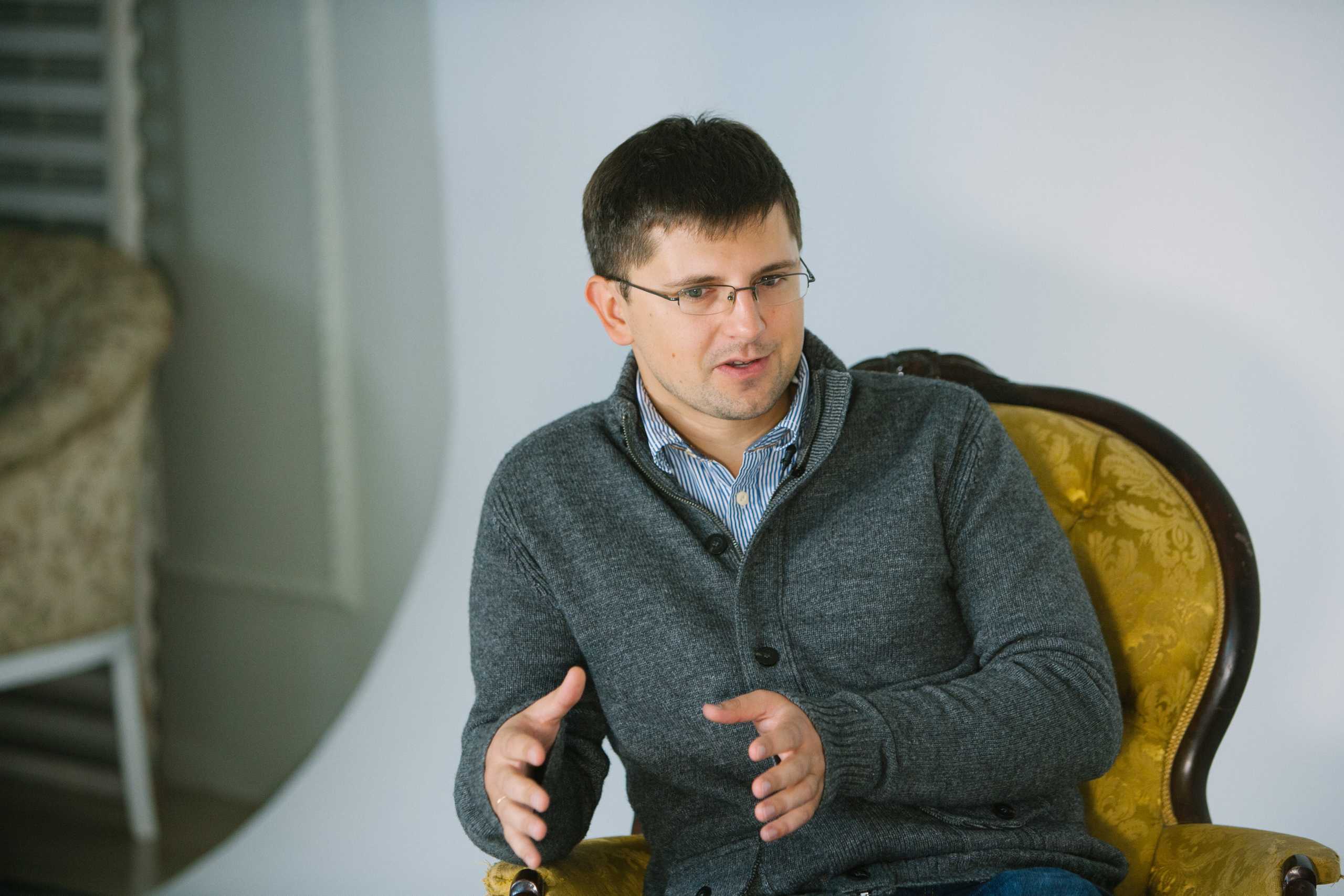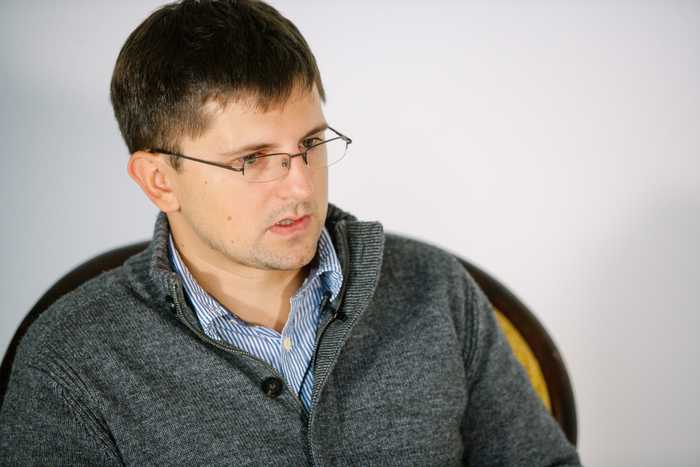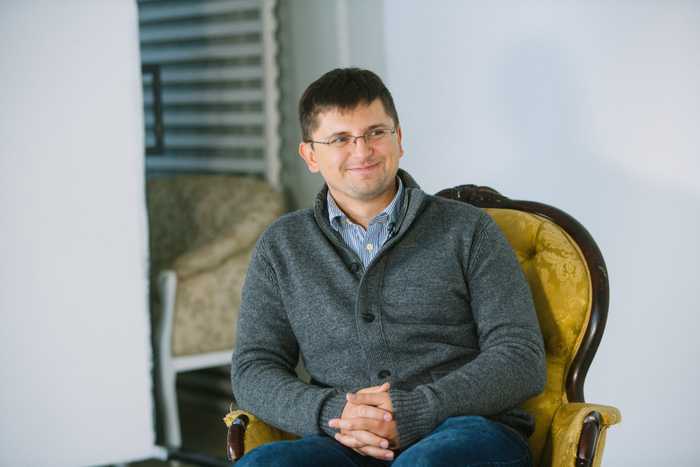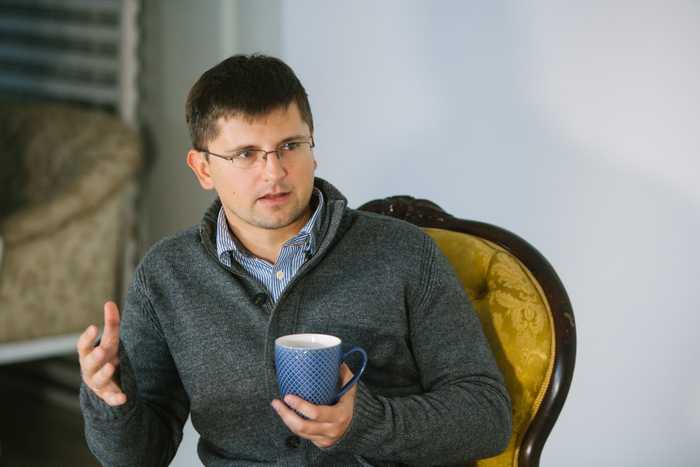Vadim Radziwill is the founder and leader of the R-NOX startup. In 2013, the company started producing individual dosimeters in Lithuania, but over time, it revised its product line, returned to Minsk and focused on industrial environmental monitoring systems and environmental data analytics. In the interview for The Heroes, Vadim talks about how to give up your favourite product, which destroys your business.
We simply sell the air. To be more precise, we sell the data on the air, but the dream of any capitalist is to sell the air. For a number of reasons, we started working in Lithuania, but the situation has changed, and I must fully admit that after all the development of Belarusian legislation and market, Belarus is now the most profitable jurisdiction for us among neighbouring countries. We saw the opportunity to feel better here, so we came back here. For several years, we had no revenue, we were in a big negative. Last year we signed a memorandum with the huge Chinese corporation Rehau. As you know, they have big problems with air pollution — therefore, oddly enough, we are shifting towards Asia.
We found a niche in which we are strong — monitoring the air quality in cities and around industrial enterprises
We experimented quite a lot searching for our niche in the hardware business, in B2 °C, then we moved to B2B and B2G. For five years of trial and error, of many falls and rises, we still found the niche in which we are strong — now it's monitoring the air quality in cities and around industrial enterprises. We’ve been contacted by more and more customers from the industry, from the state — and we went to where the money was. Money does not smell, so what's the difference how you earn it — selling your goods individually to a hundred people or selling it to one customer. The latter is even easier in terms of support and service.
We produce mini-laboratories that are complex both in production and in configuration and calibration. The value of what we do is in the creation of high-density sensor networks that are concentrated in a specific area. One of the largest and most interesting was the implementation of the project in St. Petersburg in the summer of 2018, where the customer was the city administration, the city monitoring centre. The investor was the Rostelecom company, with the participation of a major system integrator. The project was implemented by a consortium, and today it is already running. In 2019, its scaling will be implemented — if everything works out, it will be one of the world's largest sensor networks for air quality monitoring.
We realized that we were tired of losing money, and it was time to start earning
Seeing this, we realized that we should concentrate on B2B and B2G. We went through the so-called «valley of death» for startups and managed to quickly make a new product, sell it, and, in general, this was the beginning of our development. Of course, it was hard to give up what we’ve been doing for many years and for which we made big plans. But we adequately approach our capabilities. We realized that we were tired of losing money, and it was time to start earning. The motivation, in fact, remained the same — the idea and self-realization.
An excellent opportunity for projects to get very good engineers and programmers for free is to find people who have worked in large corporations, got tired of all the corporate stuff, but at the same time retained their ambitions and an airbag, which is enough to work a year for themselves or for someone in a startup. These people appeared due to what happened in Belarus with outsourcing — large corporations raised tough specialists who are now moving into startups, as I see it. The idea of a product model startup is more interesting to people — they implement some kind of an end product instead of just fulfilling some constantly changing customer requirements.
Raising investments for a serious project is quite difficult, especially for a hardware project, if it has a lot of scientific components. Although we often hear from Belarusian, Russian and foreign venture funds that they invest in technology, in fact, this is absolutely not the case. Everyone wants to invest very quickly, make a quick exit, quickly make a profit — and that's it. It’s very simple — we are moving to where we see an opportunity for the implementation of our projects and making money. I don’t know how to convince investors to give money, because we still haven’t raised any investments — except business angel investments.
One fuck-up is an indicator that the startup has the strength to move on and realize its ambitions
The story with dosimetry and radiometry — these projects were more just for us, so to say. They were commercially unsuccessful, but they were successful in terms of engineering and product experience. We practised on them, fell into a small negative… We lost several dozens of thousands of dollars on them, but I consider this a low price for the experience we received. One fuck-up, and even better a few failures, is, in fact, an indicator that a startup or company failed with some products, but they had the strength to move on and realize their ambitions. Thanks to this, people heard about us, and we received a lot of positive feedback. We got the experience of the first sales, we established new contacts, found new people for the team. All this allowed us to assemble a team, and I believe that this is the most valuable and important thing that we got from all this. It took me about three years to assemble the backbone of the team that we have today.
Our business has a rather complicated entry threshold. Large corporations earn money on the stuff that they are already creating, they don’t worry about their development, they are very slow in innovation. But for startups, there are very high scientific and engineering entry thresholds. So, it is foolish not to use the Soviet experience of engineers, designers and circuit engineers — today it is very difficult to find a young specialist with such experience who would go all the way from prototyping to certification. Therefore, naturally, we use the Soviet experience — mainly engineers, who have extensive experience in circuit design and development, or scientists with a large amount of knowledge in a particular area. Many people naively think that something can be created very quickly and simply. You can create a piece of hardware, write software, create a so-called MVP very quickly — it takes from 6 to 9 months. During this time, you can implement almost any idea. But bringing the MVP hardware to the finished product and to the store shelf is a lot of work! Certification, marketing, sales, logistics, services — in the aggregate, all this eats up much more time than the development of hardware.
It seems to me that the situation with entrepreneurship in Belarus is changing for the better. People have more and more motivation — they see the success of their peers, people from their environment, who have managed to quit their jobs, make a startup, raise investments and sell their projects to large corporations. This allows people to believe in their strength, their capabilities, and move forward. Therefore, I’m sure that the situation will change for the better, and the motivation will appear on the basis of good examples of the realization of ambitions and capabilities.



